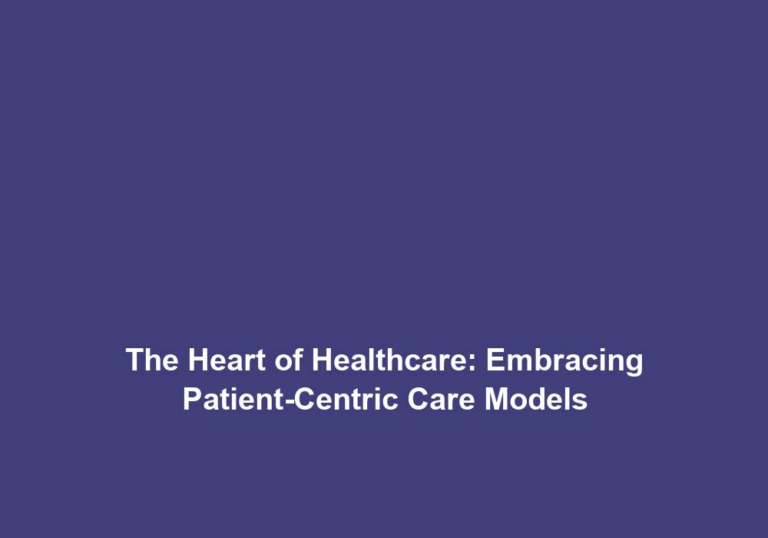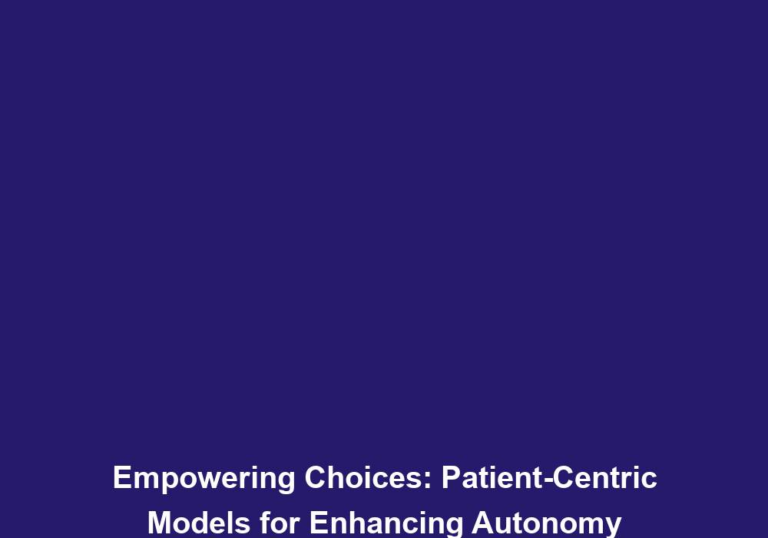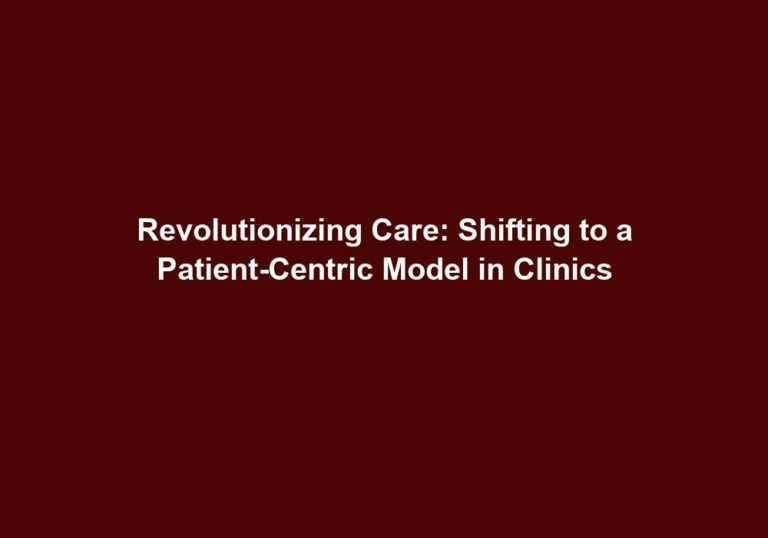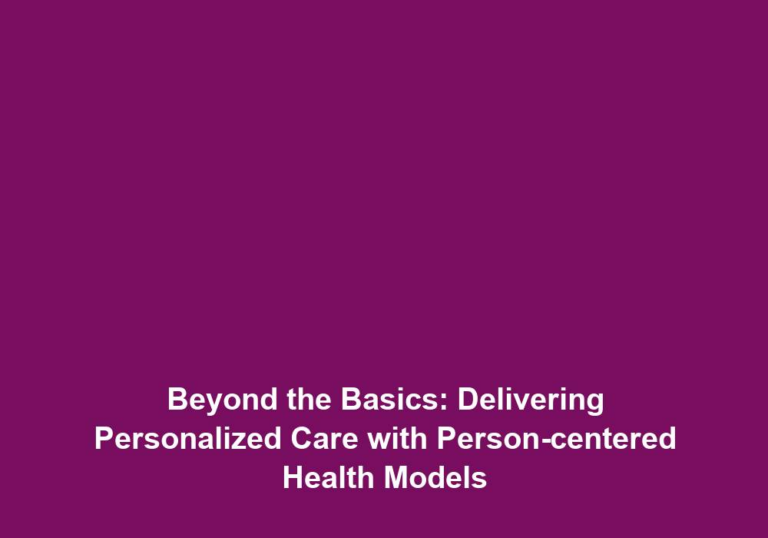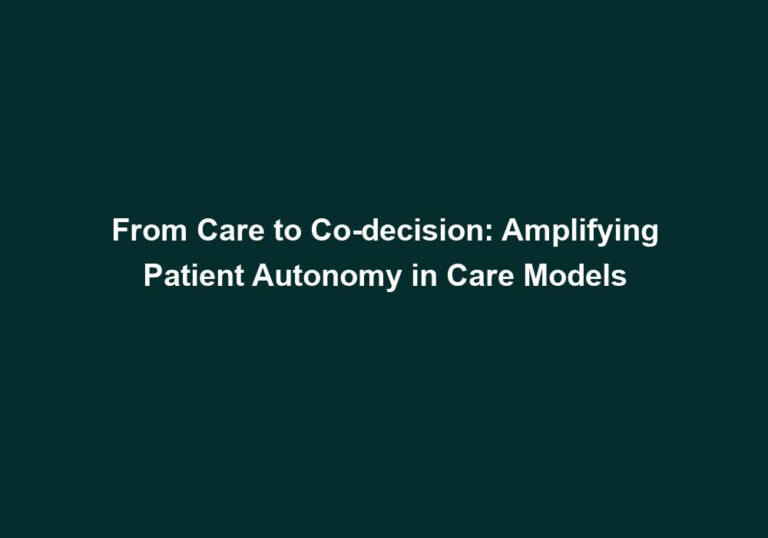Holistic Healing: Embracing Person-centered Approaches in Healthcare
Introduction
In today’s fast-paced world, the integration of holistic healing approaches in healthcare has become increasingly important. The traditional medical model often focuses solely on treating symptoms, overlooking the interconnectedness of the physical, mental, emotional, and spiritual aspects of a person’s well-being. Holistic healing, on the other hand, recognizes the importance of addressing the root causes of health issues and treating the whole person. By embracing person-centered approaches, healthcare providers can enhance the overall quality of care and promote long-lasting well-being.
Understanding Holistic Healing
Holistic healing is founded on the belief that the body possesses an innate ability to heal itself when provided with the right tools and support. It encompasses a wide range of complementary and alternative therapies, including acupuncture, chiropractic care, herbal medicine, meditation, yoga, and many others. These modalities work synergistically to create a holistic treatment plan tailored to the individual’s unique needs.
Holistic healing recognizes that each person is a unique individual with specific needs and preferences. By taking into account the physical, mental, emotional, and spiritual aspects of a person’s well-being, healthcare providers can create personalized treatment plans that are more effective and meaningful. This personalized approach considers the whole person, rather than just focusing on isolated symptoms or diseases.
To truly understand the benefits of holistic healing, it is important to recognize its impact on overall well-being. By addressing all aspects of a person’s health, including their physical, mental, emotional, and spiritual well-being, holistic healing aims to improve the overall quality of life. This comprehensive approach can lead to increased energy levels, reduced stress, improved mental clarity, enhanced emotional balance, and a greater sense of overall well-being.
Holistic healing not only treats existing health conditions but also emphasizes preventive measures. By identifying and addressing potential health risks before they escalate, individuals can maintain optimal health and minimize the need for invasive interventions. Preventive measures may include lifestyle modifications, stress reduction techniques, and regular screenings or check-ups.
Furthermore, person-centered approaches inherently prioritize building strong relationships between healthcare providers and patients. This allows for open communication, active listening, and mutual respect, resulting in a higher quality of care and improved patient satisfaction. By focusing on the individual’s unique needs and preferences, healthcare providers can tailor their approach to provide the most effective care possible.
Moreover, holistic healing approaches can seamlessly complement traditional medical treatments. By integrating both conventional and alternative therapies, healthcare providers can provide a well-rounded approach to care that addresses various aspects of a person’s health. For example, a cancer patient may receive chemotherapy as conventional treatment, while also benefiting from acupuncture to manage treatment side effects and stress reduction techniques to enhance overall well-being.
Implementing Holistic Healing in Healthcare
To effectively implement holistic healing in healthcare settings, certain strategies need to be employed:
-
Education and Training: Healthcare providers should receive adequate education and training in holistic healing approaches. This will enable them to effectively incorporate complementary and alternative therapies into their practice and ensure safe and evidence-based care. Continuous education and training programs can keep healthcare providers updated on the latest research and developments in holistic healing.
-
Collaborative Care: Collaboration between different healthcare professionals is essential in implementing holistic healing approaches. By fostering interdisciplinary teamwork, patients can benefit from a range of perspectives and expertise, leading to comprehensive and well-rounded care. This collaboration may involve healthcare providers from various disciplines, such as physicians, nurses, psychologists, nutritionists, and physical therapists, working together to create a cohesive treatment plan.
-
Patient Education: Patients should be empowered with knowledge about holistic healing approaches and their potential benefits. This can be achieved through educational materials, workshops, and one-on-one discussions, allowing individuals to make informed decisions about their healthcare options. By providing patients with the necessary information, they can actively participate in their own healing journey and make choices that align with their values and beliefs.
-
Holistic Assessment: Healthcare providers should adopt a holistic approach when assessing patients. This includes considering not only physical symptoms but also the individual’s mental, emotional, and spiritual well-being. By conducting thorough assessments, healthcare providers can develop a comprehensive understanding of the person’s health and tailor their treatment accordingly. This may involve incorporating questionnaires, interviews, and observation techniques to gather a holistic view of the patient’s well-being.
-
Integration of Modalities: Integrating complementary and alternative therapies within healthcare settings is crucial in embracing holistic healing. This can include offering acupuncture services, providing mindfulness-based stress reduction programs, or incorporating music therapy into patient care plans. By offering a variety of modalities, healthcare providers can cater to diverse patient needs and preferences. This integration can be facilitated through the establishment of dedicated holistic healing centers or the inclusion of holistic services within existing healthcare facilities.
Conclusion
Holistic healing, with its person-centered approach, offers a valuable paradigm shift in healthcare. By recognizing the interconnectedness of physical, mental, emotional, and spiritual well-being, healthcare providers can provide more personalized, comprehensive, and effective care. Through education, collaboration, and integration of various modalities, holistic healing can be embraced in healthcare settings, leading to improved well-being and enhanced quality of care for patients. Let us strive to embrace holistic healing and empower individuals to take an active role in their health and healing journey.


